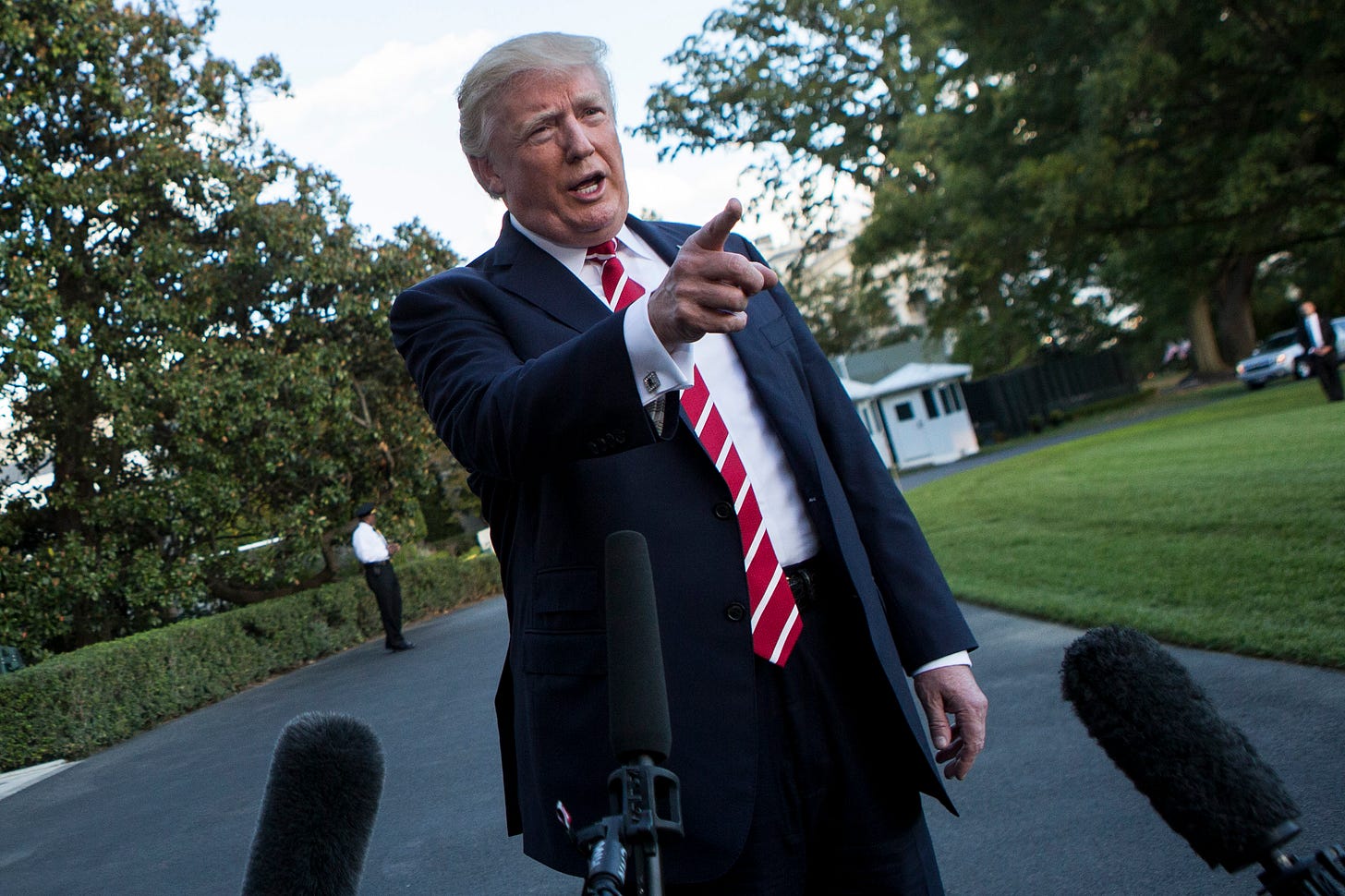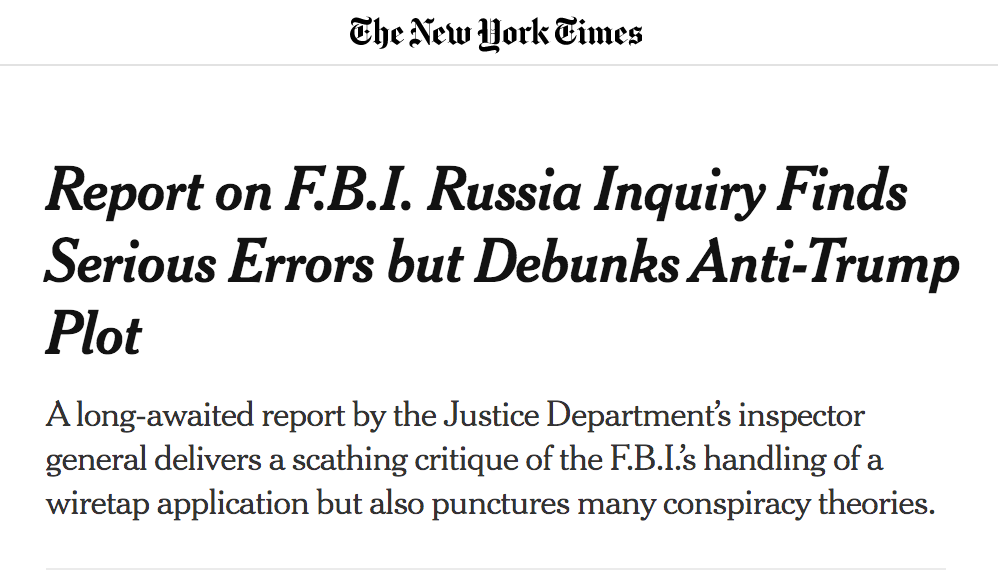When Journalists Declare In Unison That Something Has Been Debunked, Assume The Opposite Is True
The word “debunked” has gained such popularity among journalists and pundits over the past several years because it helps them achieve one of their primary goals, which is to project the unearned impression of moral and political superiority. If you’re in a position to declare to the public that a Bad Idea has hereby been “debunked,” that must make you a Serious Person with access to Serious Knowledge, or otherwise in possession of some status marker associated with authority and expertise. This appropriation of status is fake — a scam — but that’s irrelevant to whether the status can be projected, which is the goal of the journalists and pundits.
There are few more extreme examples of this rhetorical smugness blowing up in the media’s face than the ongoing fiasco over the COVID lab leak theory, which throughout 2020 and even well into 2021 was confidently proclaimed to have been “debunked” by journalists who never actually possessed the requisite knowledge to justify such a self-assured judgment. But because they were issuing these proclamations from their perches at the New York Times, Washington Post, Daily Beast, etc., what they did possess was an unearned claim to moral and political superiority by virtue of the status perceived to be associated with those institutions. Hence, in elite media circles, constantly running around and announcing that certain Bad Things and Bad Ideas have been “debunked” is not a genuine expression of superior knowledge, but rather an expression of moral and political superiority marshaled against one’s perceived lessers. Because if you are promoting Debunked Ideas, you are Bad and creating Harm — and perhaps even Violent.
Given that this smug attitude is about the projection of moral and political superiority, as opposed to the actual possession of superior knowledge, it’s no wonder that things widely claimed in the media to have been “debunked” so often turn out to not have been “debunked” at all. Very frequently, as with the lab leak matter, the opposite is true — the lab leak theory was never “debunked” at the time journalists were confidently proclaiming it debunked; in fact, its plausibility was increasing. When a supposedly “debunked” thing is proven true, or at the very least hasn’t actually been rendered false as claimed, maybe that thing has become “un-bunked”? Or “re-bunked”? Some style-guide specialist in the journalism industry should really try to invent a term capturing this phenomenon, because it occurs with such embarrassing frequency — to the point that whenever you see a chorus of journalists insisting in unison that something has been debunked, you’re usually better off assuming that the opposite is the case.
Notice how “debunked” is used in this December 9, 2019 New York Times headline:
This was in relation to a just-released, long-awaited Department of Justice Inspector General Report examining the surveillance practices of the FBI in the early phases of the Russiagate saga. The Report found that the FBI had engaged in extensive manipulation and deceit to surveil a figure associated with Donald Trump’s 2016 presidential campaign, Carter Page, which itself was a crucial event in generating the overall Trump/Russia conspiracy narrative that dominated US politics for approximately four years.
But there’s the New York Times, doing all it can to disabuse its readership that the malfeasance uncovered by the Report could possibly vindicate any of the Bad Ideas promoted by Bad People (aka Trump and Trump supporters.) And the rhetorical tool in their arsenal to hammer this home is, naturally, “Debunked” — they threw it right there in the headline. A separate “news analysis” article says of the Report, “It landed mostly with a thud, and it even ended up debunking the claim that the dossier was the origin of the F.B.I.’s Russia investigation.” Debunked. Landed with a thud. Womp womp. Moral and political superiority projected.
Conveniently for the NYT and the rest of the Debunking Squad, 99% of news consumers never actually read the full IG Report. Because if they did, they would’ve seen this portion:
So Mark Mazzetti of the NYT insists the Report triumphantly “debunked” the idea that the Steele Dossier “was the origin of the FBI’s Russia investigation,” but nonetheless the Report does verify that the Steele Dossier — which really was a “debunked” slew of nonsense opposition research — had been a central component of the FBI’s surveillance operation. Mazzetti chooses to convey to readers the impression that allegations of the Steele Dossier having played any significant role in the origin of the Trump/Russia investigation had been “debunked.” Because the term “debunked” functions here as a projection of moral and political superiority — in accordance with Mazzetti and the NYT’s intended portrayal of the available evidence. It had nothing to do with genuinely superior knowledge.
Furthermore, what if you’re of the view that the “Serious Errors” outlined in the Report — which, again, documented vastly intrusive government surveillance of a US citizen on false pretenses — were not just mere innocent “errors,” as the first NYT headline characterized them, but instead reflected nefarious enough intent that they could reasonably be said to constitute an “anti-Trump plot”? Sorry, that plausible interpretation of the available evidence was believed by Bad People, and deemed not Serious enough to be entertained by the New York Times. It therefore had to be stamped with a big fat “DEBUNKED” label. This doesn’t mean the existence of an “anti-Trump plot” had actually been authoritatively “debunked” by the Report. It just means that the people who affirm the existence of an anti-Trump plot are considered Bad, and the NYT sought to marshal its moral and political status against them, by sullying them as hopelessly “debunked.”
One other thing the Report did was substantiate central elements of the so-called “Nunes Memo,” which had been authored by Rep. Devin Nunes and alleged that abusive surveillance practices were employed by security state agencies to kick off the Russiagate saga.
This was ironic for a multitude of reasons, one of which being that in February 2018, Nancy Pelosi introduced a resolution declaring “members of the national security community and experts across the political spectrum have debunked and denounced the Nunes memo since its publication.” Pelosi used the term “debunked” for the same reason journalists, many of whom were similarly scornful of the Nunes memo, use the term: to project an unearned sense of moral and political superiority, not superior knowledge. Was Pelosi’s initial “debunking” retrospectively declared to itself have been “debunked”? Of course not. Because the term “debunked” functions as an expression of political and moral superiority, not of objectively superior knowledge. Sorry to be repetitive, but it’s necessary given how repetitiously the word “debunked” has been thrown around to propagandize Americans.
Sometimes the term is used in totally superfluous, redundant contexts. Here’s a recent example from Reuters which, as part of a noble “Fact-Checking” endeavor, took aim at “the widely debunked QAnon conspiracy theory.” Wow, congratulations. You “debunked” a crazed quasi-religious internet creed which posited that God-Emperor Donald Trump was working with the ghost of John F. Kennedy Jr. to save humanity from demonic pedophiles or something. Next up: journalists will ruthlessly DEBUNK the theory that Elvis is alive and that the Moon is made of cheese. The Debunkers’ posture of prideful certitude does nothing to convince anyone of anything — it’s just a display of moral and political superiority.
Not surprisingly, given the overlapping ideological imperatives and cultural sensibilities of the two industries, the Tech sector has borrowed from the Media sector in also regularly touting its “debunkings” to justify corporate censorship initiatives. Clearly, a powerful synergy of media, Tech Corporations, and the political class are in firm agreement to always be on the lookout for Bad Ideas and Bad People that need to be taught a lesson. Sorry ladies and gentlemen, you have been debunked by Mark Zuckerberg.
Take, for example, the explanation presented by Facebook for its expulsion of Robert F. Kennedy Jr. from one of its properties, Instagram:
"We removed this account for repeatedly sharing debunked claims about the coronavirus or vaccines," a spokesperson for Facebook, which owns Instagram, told NPR on Thursday.
(The NPR article reporting the expulsion concludes with the innocent disclaimer, “Editor's note: Facebook is among NPR's financial supporters.”)
Robert F. Kennedy Jr.’s opinions on vaccines seem a bit loopy — I’ve personally received the COVID vaccine, and I join with Former President Donald J. Trump in recommending that others receive it. But finding certain opinions a bit loopy ought not to warrant the belief that the expressors of those opinions be banished from the public arena. Tech companies, therefore, add an extra layer of moral and political condemnation by declaring those opinions not just loopy but “Debunked.” Because as is well known, promoting Debunked Ideas makes you not just wrong but Bad, Harmful, and Possibly Violent.
If cultural and political elites really want to convince vaccine skeptics to get the vaccine, the last thing they should do is smugly declare skeptics’ opinions “debunked,” given the humiliating discreditation of the term.
Likewise, I’ve long been a skeptic of GOP “election fraud” claims stemming from the 2020 election, most of which I’ve found upon examination do not hold up to scrutiny — if you can ever manage to nail down specifically what kind of “fraud” is even being alleged. Usually it’s just a generalized suspicion or incredulity about Biden winning. But does the media’s constant, repetitious drum-beat declaration of these claims to have been “debunked” seem like it’s made any difference? Does it seem like fewer people believe that the 2020 election was fraudulent as a result of being lectured by media elites ad nauseam that their opinions are “debunked”? Do I really need to answer that question?
In recommending that one assume the opposite is true when they hear journalists and pundits unite to declare a Bad Thing “debunked,” I don’t recommend, for example, credulously believing that every individual election fraud claim is true. What I’m recommending is that the public see these “debunking” mantras for what they are: expressions of moral and political superiority, not superior knowledge.
This week, another Inspector General Report came out, which one might say “debunked” a key Democratic Party talking point intended to show the depravity of Donald Trump. For a full year, an incessantly repeated claim was that Trump and his minions tear-gassed Peaceful Protesters in Washington, DC to clear the way for a sick Bible-brandishing photo op. But the Interior Department Inspector General found that plans to clear Lafayette Square were already well underway before it was known that Trump intended to walk to St. John’s Church and wave a Bible around. Officials involved in the operation vehemently denied that Trump’s visit had anything to do with their actions. The Report, which is full of documentary evidence, undercuts a mantra that had been repeated over and over again, to the point that it congealed into a kind of Democratic Party folk wisdom.
Will the elected officials, journalists, and pundits who made these false claims now be declared “debunked”? No. Because the term is used not as an expression of superior knowledge, but as an expression of moral and political superiority.






Moral and political superiority is a heavy burden. Those who carry this need a space that is free from criticism and harm. They also need footrubs from the pleebs so that they can continue the work.
I have now got to the point with the US commercial media that I arrived at in the mid-'00s regarding the US Defense Dept: if the Pentagon says something, assume the opposite because they are lying.
I am now seriously wondering whether the election really was stolen . . . not because I have any evidence that it was, but simply because the media are so emphatic and vociferous in denying that it was.